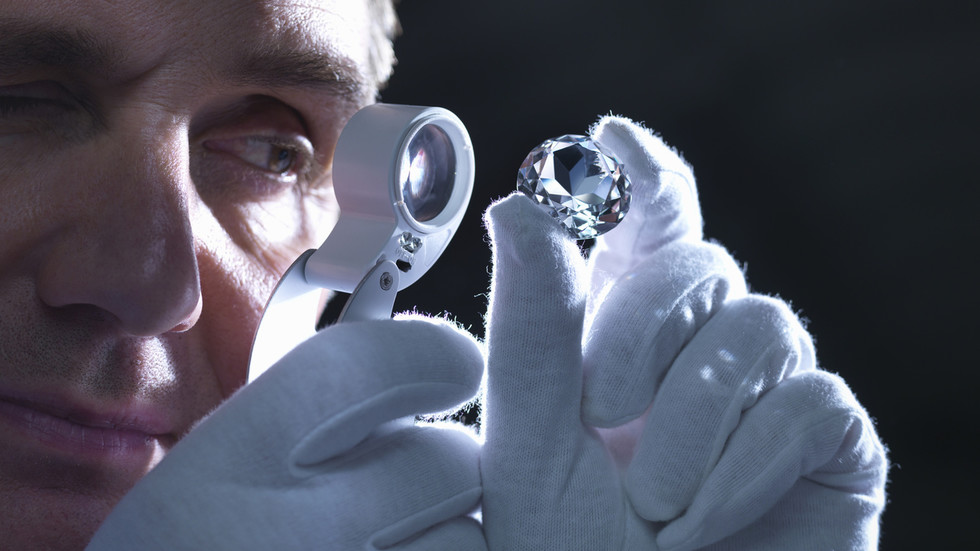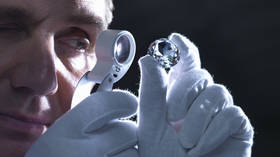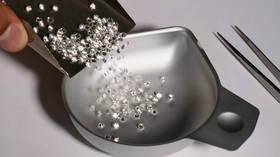
Belgium wants to wait until a full traceability system is ready before implementing a ban

© Getty Images / Monty Rakusen
Belgian Prime Minister Alexander De Croo has said his country will not ban wholesale imports of Russian rough diamonds until the EU and G7 establish a system that allows tracing the origin of the gems. He made the remarks at a joint press conference with Ukrainian President Vladimir Zelensky in Brussels on Wednesday.
The G7 recently announced its intention to place an embargo on direct and indirect imports of Russian diamonds, but Belgium has been stalling those efforts. Industry majors have warned that Antwerp, through which 90% of the world’s diamonds pass, would risk losing business as a diamond hub if it placed an outright ban on wholesale imports from Russia. According to De Croo, a wholesale ban would also create loopholes for circumventing the measure, and Russian diamonds could end up in Western markets through third countries.
“If you only do it on the wholesale markets, then it will be traded to other diamond centers in the world. And we will still have it in our shops, and it would make no difference for Russia,” he noted.
Belgium came up with its own proposal – to introduce a diamond tracking system, where Antwerp will function as a sorting hub. The details of the mechanism are unclear, but those behind it claim it would allow the G7 and EU to track not only wholesale imports, but retail sales, which is seen as a more certain way to free their markets of Russian diamonds, according to De Croo.
“What you want is to cut off Russian dominance completely from our retail markets. The best way to do that is with the full traceability system to exclude Russian diamonds from all the markets. This full traceability and this full banning on the retail markets is the only way to make sure that Russia is not financing the [military operation in Ukraine] anymore with those diamonds,” he explained.
According to De Croo, those charged with working out the ban “are very close to finalizing such a full traceability system.” He expects the regulation to come into force on January 1, 2024.
Industry experts warn that Belgium would be seriously affected by restrictions on Russian diamonds. According to various sources, the Antwerp diamond industry gets from 25-40% of its diamonds from Russia.

Belgian imports of Russian diamonds have fluctuated wildly over the past year and a half. According to statistics from Belgium’s national bank, in the first eight months of 2022 the country imported €1.2 billion ($1.27 billion) worth of stones, against €1.8 billion in 2021. However, while imports were very high in June at €393.8 million, in August they dropped to a mere €35.9 million, an 83% year-on-year fall. In January this year, Belgium imported €132 million worth of Russian rough diamonds, which was higher than the €97 million in January 2022. In February, the import value dropped again to €61 million.
For more stories on economy & finance visit RT’s business section




